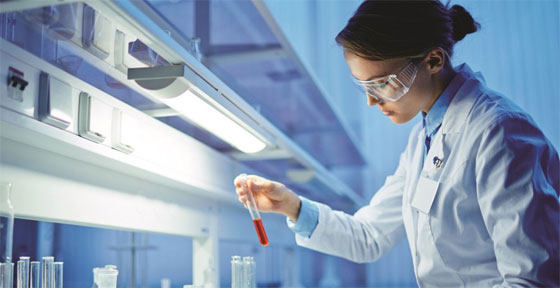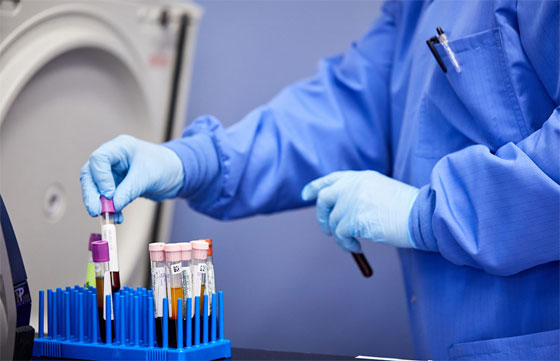The Biotech Antibody Deception (1)
The world has been fixated on novel-coronavirus PCR testing, contact tracing and vaccination. Meanwhile, another major part of the covid biomedical complex has received far less attention: the use of antibodies for detecting, diagnosing and even treating infection with the novel coronavirus. Hundreds of antibodies produced by biotech or pharma giants have been approved for these purposes since January 2020. And hundreds more are poised to start being marketed.
This is part of the biomedical gold rush: by 2020 summer already, antibodies were on track to become the most lucrative medical product, with global revenue projected to reach nearly half a trillion dollars by 2024. Profit margins in the range of 67% aren’t uncommon. Pharma giants such as AstraZeneca, Novartis, GlaxoSmithKline and Eli Lilly are among the companies grabbing the largest chunks of the novel-coronavirus-antibody market. And some of the most muscular government agencies, including Anthony Fauci’s US National Institute of Allergy and Infectious Diseases and the US’s Defense Advanced Research Projects Agency (DARPA), are part of the action (see, for example, the second-last section of this article, on antibodies used to treat covid).
Virtually every study and piece of marketing material related to covid is premised on scientists having positively and correctly identified the presence of the novel coronavirus (also known as SARS-CoV-2) in the material they’re working with.
The job of that identification is usually given to antibodies that are said to bind to the novel coronavirus. The assumption is these antibodies are able to pick out the virus and only the virus from among every other organism and substance surrounding it.
Unfortunately it turns out that the antibodies rarely (if ever) do that – pick out the virus and only the virus from among every other organism and substance. This is because of, among other aspects, inadequate verification of the antibodies’ accuracy in targeting the virus, by the biotech or pharma companies that manufacture and sell them. And there’s even less verification by government regulators.
A little reminding note: all the official requests to medical authorities in different countries for revealing the isolation of SARS-CoV-2 said that there is no such isolation. No laboratory could isolate this virus, and make a full identification chart for it, from biological samples taken from ill people.
Now, we will continue the “antibodies story”. Let’s take a 30,000-foot tour of a couple of the main features of the antibody-industry landscape, which is awash in complexity and cash.
Can antibodies be created through biotechnology that only bind to one type of virus or another?
Antibodies are tiny, finely-tuned, molecules produced by our immune system. One of their main functions is to seek out viruses and bacteria that may have the potential to cause us a disease. Antibodies bind to and neutralize these pathogens so they can’t multiply and spread.
Humans’ and our ancestors’ immune system has been producing antibodies in our bodies to fend off infections, for millions of years. Then a few decades ago companies got involved in the discovery of production and manipulation of antibodies, partnering with university labs.
There are two main categories of antibodies. One is ‘polyclonal’ antibodies. These are garden-variety antibodies that bind to a variety of different substances and/or organisms. The other is ‘monoclonal’ antibodies. As the name implies, cloning is involved in their creation. First an antibody that is specific, which means binds specific to a particular amino-acid sequence (amino acids are the building blocks of proteins) of interest – for example, one from a protein on the surface of a virus or bacteria – is identified. Then the immune-system cell which produce that antibody is ‘cloned’ in the lab. As a result, each set of monoclonal antibodies binds to that particular amino-acid sequence.
To get clarity on this there were some questions which were addressed to one of the English-speaking world’s leading authorities on monoclonal antibodies, Harvard Medical School professor Clifford Saper. He has been asked if it’s true that, as most in the antibody-commercializing arena claim, a monoclonal antibody can be created that’s specific for (that is, binds to) just one type of virus or just one other type of organism. Saper replied: “No, there is no such event as a monoclonal antibody that, because it is monoclonal, recognizes only one protein or only one virus. It will bind to any protein having the same (or a very similar) sequence.”
The implication of Saper’s statement is that any attempt to use a monoclonal antibody to verify the presence of the novel coronavirus will yield a large rate of false-positive results. That is, they will indicate that the novel coronavirus is detected when in fact it hasn’t been. It is detected only the protein sequence which those monoclonal antibodies were created to bind. So, the amount of false positivities will be huge. That’s because there’s a high probability that the monoclonal antibody is binding to something else besides the virus (this is known as ‘cross-reactivity’). And this explains, for example, the positivity in the case of papaya and goat samples sent by former Tanzanian president for covid-19 identification to WHO.
To anyone wishing to learn about antibody validation, it is recommended this review paper by Saper, and this one and this one co-authored by Yale pathology professor David Rimm.
And in fact, the vast majority of antibodies and monoclonal antibodies marketed as being specific for the novel coronavirus were developed years ago for detecting SARS-CoV-1. They were then simply repurposed for identifying SARS-CoV-2 – with very few, if any, checks for whether they also cross-react to other organisms or substances.
There is a confirmation of this repurposing from Zhen Lu. She’s the North American marketing manager for Sino Biological, a Beijing-headquartered company that develops and sells, among other items, hundreds of antibodies. Lu replied via email, “Yes, antibodies are repuposed [sic].”
It had also been checked and received confirmation from Pratiek Matkar, a senior staffer from BenchSci, an antibody-database company. And to see it, the investigator logged himself into the BenchSci database (Matkar granted a guest account), selected all antibodies for the novel coronavirus, and looked to see which organisms had been used in cross-reactivity tests for them. SARS-CoV-1 was the only one that came up in this check.
This all explains something observed last year: Sino Biological had just modified the content of its home page for the section of their website on antibodies against SARS-CoV-2. The page afterwards announced that they’ve introduced new “matched antibody pairs” that work better at finding the virus. The pair consists of a “capture antibody” and a “detection antibody.” And they claim these pairs are more accurate at finding the novel coronavirus: that they “have high specificity without cross-reactivity with MERS-CoV [or with the common human coronaviruses] 229E, NL63, HKU1, [and] OC43.”
The only way can that be interpreted is: they know the antibodies they’ve been marketing for months as being specific for the novel coronavirus bind to other pathogens, such as common human coronaviruses.
How are antibodies harnessed in tests for the novel coronavirus?
One of the main types of tests for the virus contains antibodies (biotech produced) that are ostensibly specific for the novel coronavirus. The way they’re designed to work is that if the virus is present in a blood sample the antibodies bind to it and, as a result, the test gives a positive signal.
The other type of test contains sequences of protein from the novel coronavirus; if antibodies to the virus are present in a blood sample, they bind to the protein sequences and produce a positive result.
The manufacturers are supposed to conduct accuracy checks of their test kits before they put them on the market. These checks largely consist of estimation of the rates of false positives and false negatives (the latter is a negative result when the antibody or viral protein of interest is contained in the sample being tested by the kit).
However, companies do this cursory accuracy check with only very few samples of a small number of viruses – and rarely on bacteria or any other of the millions of biological substances that can be present in the blood. Despite this very inadequate validation and the strong incentive for the companies to make their products look good, as documented in May 2020 by David Crowe, the manufacturers often record a significant rate of false positives. The false positives are to everything from West Nile virus to various types of human coronaviruses.
Usually the companies and governments wave that off as “insignificant”. Occasionally though, the test kits are so bad that they’re taken off the market. For example, an antibody-testing kit sold by a company called Chembio Diagnostics was launched on March 31, 2020. It was almost immediately granted Emergency Use Authorization (EUA) by the US Food and Drug Administration (FDA). An EUA allows companies to rush products onto the market with very minimal oversight. Brazil and the European Union also gave the nod for the Chembio test to be sold in their jurisdictions in April and May 2020, respectively. Then in June 2020 the FDA pulled it off the market. The agency said: “this test generates a higher than expected rate of false results.” But in November 2020 the Chembio antibody test again was approved for use in Brazil. And on January 14, 2021, the test got the nod in the European Union, the UK and Ireland. Is it identical to the rest that was so inaccurate it was pulled off the market in June 2020? It’s hard to tell.There is no product insert for it that could be found. In fact there’s very little information about it on the webpage for the test; you have to request the information.
Two of the heads of the FDA branch that approves testing devices penned a February 18, 2021, New England Journal of Medicine article. In it, the pair admitted that the FDA’s EUAs allowed too-loose approvals for serology tests.
They indicated the FDA has tightened its criteria for approval of these tests. They also pointed to efforts by other government agencies to evaluate serology tests. But the pair didn’t say a word about the need to move toward objective, thorough test validation. They also were mute on the fact that EUAs are still being issued.
Also it is to be noted that the FDA and Health Canada listings of the serology tests approved in the US and in Canada, for SARS-CoV-2 continue to give the sensitivity [correct identification of positive samples] of the tests by ‘positive percent agreement’ (not by a specific percentage!) and specificity [correct identification of negative samples] by ‘negative percent agreement’ (not by a specific percentage!). These are relative measures of accuracy – that is, compared to other tests – rather than objective/absolute accuracy, and therefore are poor facsimiles of accuracy. In other words, these show little accuracy of the tests.
Read the rest of the article
yogaesoteric
January 30, 2022



